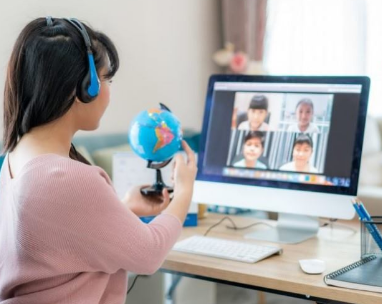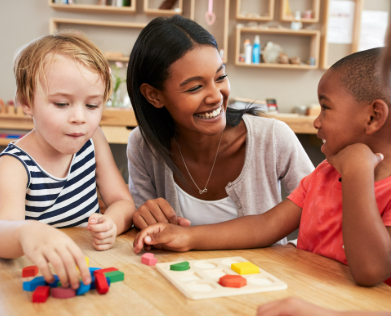In the busyness of daily life, it is easy to prioritize relationships with others while neglecting the one relationship that truly shapes every other connection you have: the relationship with yourself. Cultivating a daily friendship with yourself is not about self-indulgence or vanity. Instead, it is about nurturing an ongoing sense of trust, compassion, and understanding for your own needs and experiences. This kind of friendship lays a foundation for inner peace, resilience, and authentic happiness.
Building a friendship with yourself begins with awareness. Just as you would spend time learning about a friend’s preferences, fears, and dreams, you can invest the same curiosity and patience toward understanding yourself. This means noticing your emotional states without judgment and exploring your thoughts with genuine interest. For example, when you feel anxious or frustrated, instead of immediately dismissing the feeling, take a moment to ask yourself why it has arisen and what it might be signaling. Journaling or reflective writing can be a powerful tool in this process, allowing you to articulate your inner world and recognize patterns that might otherwise go unnoticed.
Listening plays a critical role in friendship, and listening to yourself is no different. Give yourself permission to pause and truly hear your inner voice. This could be through quiet meditation, mindful walks, or simply sitting with your thoughts at the end of the day. The goal is to create a consistent space where you are fully present with yourself. Over time, this practice helps you to become more attuned to your needs, desires, and boundaries. When you know yourself well, you can make choices that are aligned with your values and aspirations, rather than acting out of habit or external expectation.
Kindness is a cornerstone of any friendship, and self-kindness is equally essential. Daily acts of self-compassion can transform your internal dialogue from critical to supportive. Speak to yourself as you would speak to a dear friend who is facing challenges or setbacks. Acknowledge your efforts, celebrate small victories, and remind yourself that it is natural to experience difficulties. This gentle approach fosters resilience and reduces the emotional toll of self-criticism. Over time, kindness becomes habitual, creating an internal environment where you feel safe, encouraged, and motivated to grow.
Routine is another important element in strengthening a friendship with yourself. Dedicate regular moments in your day to activities that nourish your mind, body, and spirit. This could include reading, taking a walk, practicing mindfulness, or engaging in creative hobbies. The key is consistency; even brief daily practices signal to yourself that your well-being is a priority. Think of these moments as appointments with your best friend—you would not cancel plans with someone important, and the same principle applies to yourself.
Self-acceptance is equally crucial in developing a daily friendship with yourself. Accepting yourself as you are, including your imperfections and limitations, allows for genuine connection. It is not about resigning to challenges or ignoring areas of growth. Instead, it is about recognizing your inherent worth and approaching self-improvement from a place of curiosity and respect rather than judgment. When you accept yourself fully, you build a solid foundation for lasting self-trust and confidence.
Engaging in playful and joyful activities can also enhance your friendship with yourself. Laughter, creativity, and exploration are vital components of connection. Whether it is dancing to your favorite music, sketching, cooking a new recipe, or exploring a new environment, embracing moments of fun and curiosity reinforces your bond with yourself. These experiences remind you that life is not only about responsibilities and challenges but also about enjoyment and self-expression.
Another important aspect is setting healthy boundaries, both internally and externally. A strong friendship requires mutual respect, and part of that is honoring your own limits. This could mean recognizing when you need rest, saying no to activities that drain your energy, or prioritizing time for reflection and self-care. Establishing boundaries demonstrates respect for your own well-being and reinforces the understanding that your needs matter. It is an act of self-advocacy that nurtures trust and stability in your daily self-relationship.
Reflection is a practice that helps deepen your self-friendship. Take time periodically to consider your personal growth, accomplishments, and challenges. Reflecting does not have to be elaborate or time-consuming; even a few minutes at the end of each day can provide valuable insights. Acknowledging progress and learning from experiences fosters self-awareness and reinforces the feeling that you are a supportive and attentive friend to yourself. Over time, reflection builds clarity, guiding your actions and intentions in alignment with your values.
Forgiveness is another essential component. Just as in any friendship, mistakes and misunderstandings are inevitable. Practicing self-forgiveness allows you to release guilt or regret that may otherwise weigh you down. Understand that errors are opportunities for growth, and approach them with compassion. By forgiving yourself, you cultivate patience, reduce internal conflict, and maintain a harmonious relationship with your inner self.
Finally, express gratitude for yourself regularly. Recognize the efforts you make to maintain your well-being, your resilience in difficult times, and the unique qualities that define you. Gratitude reinforces positive perception and strengthens the bond of friendship you are nurturing. When you appreciate your own presence and contributions, you cultivate a mindset of abundance, which spills over into other areas of life, enriching your relationships with others as well.
Building a daily friendship with yourself is not a quick or linear process. It requires patience, intentionality, and consistent practice. However, the rewards are profound. When you prioritize understanding, kindness, and joy in your relationship with yourself, you cultivate an inner sanctuary that supports emotional health, resilience, and authenticity. This friendship becomes a source of comfort, guidance, and inspiration, influencing every aspect of your life.
In the end, developing a daily friendship with yourself is an invitation to live more fully, authentically, and harmoniously. It is about embracing your own company, nurturing your inner world, and treating yourself with the respect and care that you deserve. By committing to this practice each day, you lay the foundation for a life enriched by self-awareness, joy, and inner strength—a life in which you are truly your own most cherished companion.






